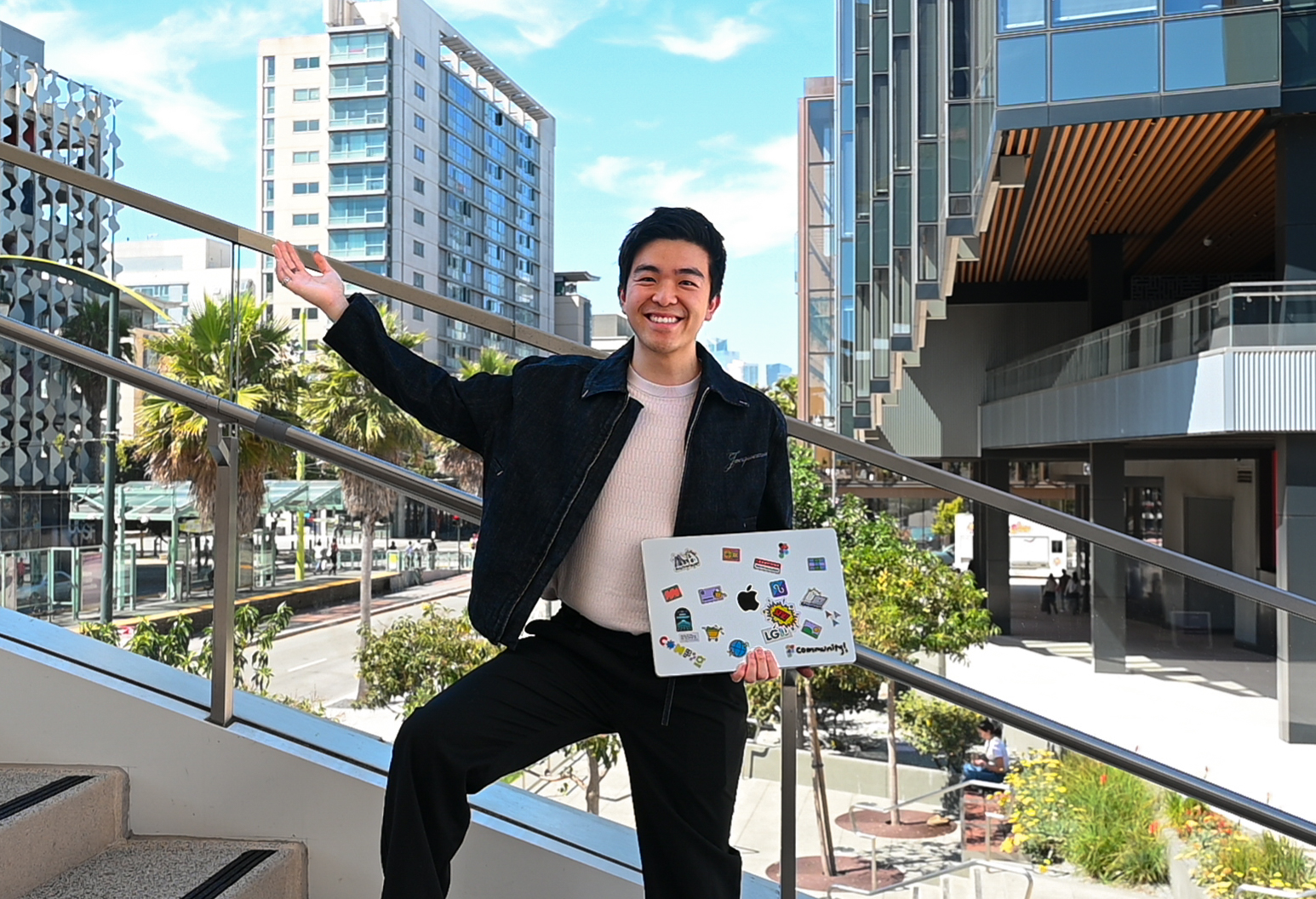Every time you scroll through Instagram or order food from DoorDash, you’re using a digital interface shaped by Figma Design. Over the past five and a half years, Matthew Huang (‘15) has helped push Figma from a 100-person startup into a company with over 2000 employees. Now a technical lead working on the front-end platform team, he focuses on helping engineers at Figma build clean and reliable code.
Figma is a prominent design company that offers a suite of collaborative platforms to create, prototype and test user interfaces. Major companies like Facebook, Instagram and Yelp utilize Figma Design, enabling designer teams to collaborate in real time on their respective products.
As a tech lead, Huang guides initiatives to modernize Figma’s codebase. His team ensures that the platform can continue developing smoothly as more features are added.
“I’ve been working on revamping the way that Figma’s application gets data from its servers,” Huang said. “We have to improve code that has been written in one pattern for the past 10 years and move it all to better patterns for the future of Figma development.”
Huang compares writing software to professional organizer and TV personality Marie Kondo’s philosophy of decluttering—only keeping items that spark joy.
“I really enjoy making sense out of things that are complicated and putting them into cubbies that feel neat and organized,” Huang said. “I can see the effects of what I do at Figma on my teammates. It allows them to build things easier and safer—to feel less annoyed and cluttered when they’re working in our codebase.”
As his role grew in Figma, Huang recognized that leading his team meant not just assigning tasks to them but also understanding what motivates them.
“In order to cater to everyone’s needs, I have to find projects they’re uniquely suited for,” Huang said. “Understanding my teammates and allowing them to shine at their best potential is something that I’ve had to pick up, but it’s also something that I really enjoy trying to be better at as well.”
His journey to software development and current work philosophies began in high school, where taking classes like AP Physics C and AP Computer Science sparked his interest in deeply understanding STEM subjects. Huang further pursued his passion at Harvard University, where he earned a degree in computer science.
“The teachers at Harker really loved the subjects that they were teaching, and the assignments we got there were really fun and hands-on,” Huang said. “One time we programmed our own chess bot and tried to beat ourselves with it. Being able to accomplish that task in the scope of a semester of the year felt really gratifying.”
Huang co-founded a startup with his friends during university and spent two years trying to build a product from the ground up. He recalls the experience as intense, often feeling uncertain about the direction of the company.
“Everything became much clearer for me after I took a step away from the startup and joined a more established company,” Huang said. “That’s when I learned that working somewhere with more structure, clear charters and initiatives was really beneficial for me. I can become a leader in my own right in this new structure.”
At Figma, Huang discovered a company that aligned with his values. The company emphasized care and precision, an approach that followed what Huang had learned while taking advanced courses at Harker and Harvard.
“One of Figma’s values is called ‘Love your Craft’,” Huang said. “What that means to me is being almost obsessive with what you work on, being incredibly detail-oriented and making sure that everything you deliver is high quality. That’s one of the traits I love about Figma the most.”
Huang’s cultivated a career that matched his values and workstyle, even if it meant stepping away from his startup.
“Don’t try to force an interest or a passion that doesn’t seem like it’s working for you,” Huang said. “You don’t have to follow a set path, and you don’t have to do what other people tell you to do — that could be parents, friends or role models or just following a standard track that society says is supposedly better than others. I am a big advocate of just working on what you’re interested in and finding that thing that really clicks for you.”





Stephen Baxter • Sep 16, 2025 at 3:10 pm
Keep up the good work!